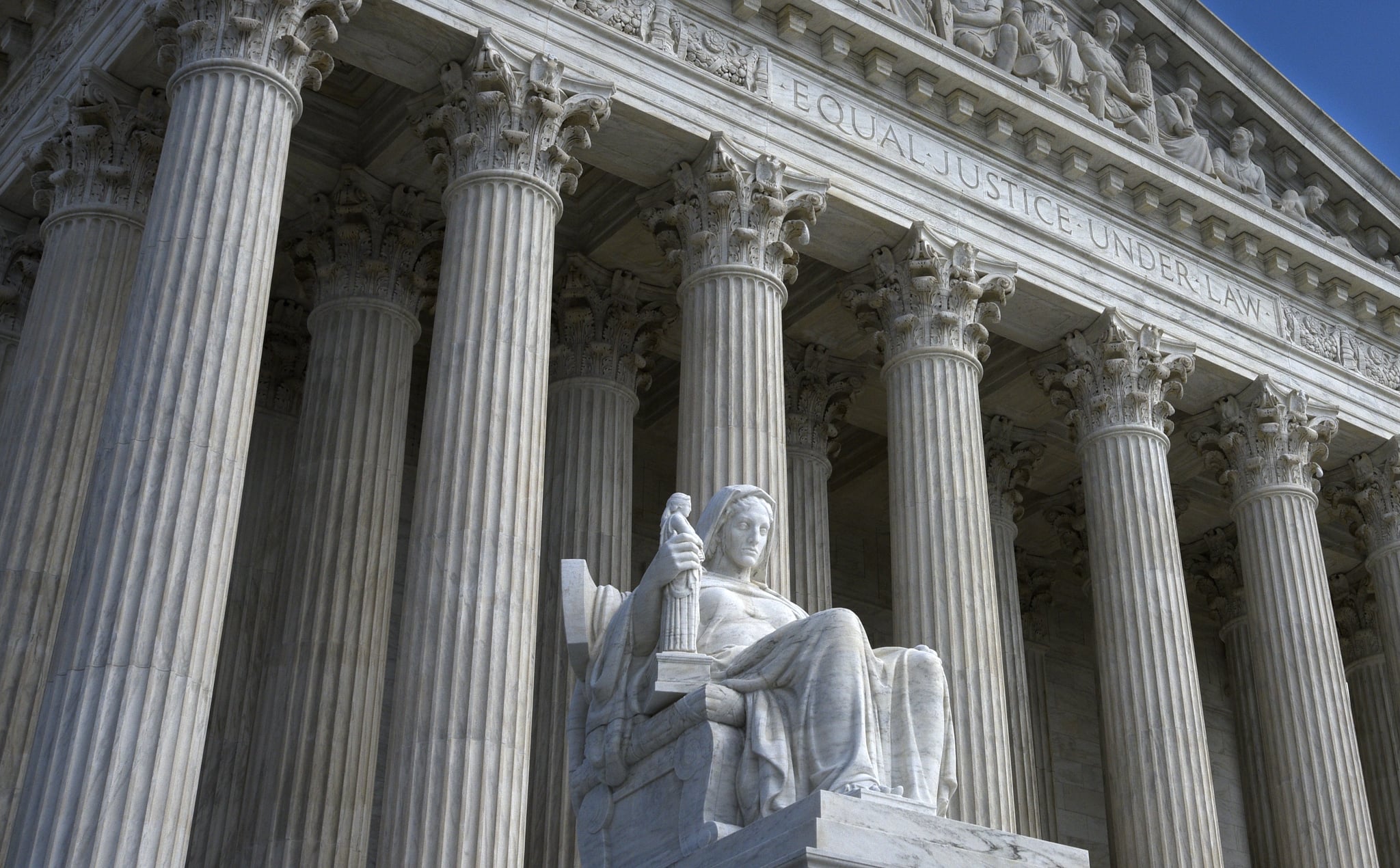
There is a small but growing call from the left to impeach several Supreme Court justices who successfully voted to overturn Roe v. Wade. Following the high court’s June 24 ruling on Dobbs v. Jackson Women’s Health Organization, which undid decades of abortion-rights progress, many advocates and progressive politicians are demanding the impeachment of the justices who, it’s being claimed, misled in their confirmation hearings. But is it possible to impeach a justice? And what does the process look like?
Is There Precedent For Impeaching a Supreme Court Justice?
The law does allow for the impeachment of federal judges under Article I of the United States Constitution, per the Brennan Center for Justice at New York University’s School of Law. There would first need to be a majority vote in the House of Representatives, and it would then move to trial in the Senate, where a two-thirds vote is required to convict and remove the judge or, in this case, justice.
The impeachment of a justice is exceedingly rare and, in fact, has only happened once before. After being appointed to the Supreme Court in 1796, Justice Samuel Chase was impeached by the House in 1804 due to alleged political bias. Chase was a stalwart Federalist, meaning he believed in a centralized national government, which threatened the beliefs of then-President Thomas Jefferson, whose Jeffersonian Republican Party was in opposition with the Federalist Party.
Though the House claimed Chase had “behaved in an arbitrary, oppressive, and unjust way” in a prior case, the Senate did not meet the two-thirds majority after six Jeffersonian Republicans crossed party lines to side with nine Federalists. In 1805, Chase was acquitted, and he continued to serve on the Supreme Court until his death of a heart attack in 1811 at age 70.
On What Grounds Are Some Currently Calling For Impeachment of Supreme Court Justices?
Alexandria Ocasio-Cortez is one of the voices leading the politicians calling for impeachment. The New York representative believes justices Neil Gorsuch and Brett Kavanaugh knowingly mischaracterized their Roe v. Wade stances in their respective confirmation hearings in 2017 and 2018. “I believe lying under oath is an impeachable offense,” she said in an interview with NBC. “It sends a blaring signal to all future nominees, that they can now lie to duly elected members of the United States Senate in order to secure Supreme Court confirmations and seats on the Supreme Court,” she said.
“If we allow Supreme Court nominees to lie under oath and secure lifetime appointments to the highest court of the land and then issue, without basis, rulings that deeply undermine the human and civil rights of the majority of Americans, we must see that through,” Ocasio-Cortez added. “There must be consequences for such a deeply destabilizing action and hostile takeover of our democratic institutions. To allow that to stand is to allow that to happen.”
Ilhan Omar is in agreement. “Congress also has the authority to impeach Members of the Supreme Court and has done so before,” the Minnesota representative tweeted. “We need an impeachment investigation into Clarence Thomas’s role in the January 6th coup, as well as into Gorsuch, Alito, Barrett, and Kavanaugh’s testimony on Roe during their confirmation hearings.”
Ocasio-Cortez used comments made by senators Susan Collins and Joe Manchin — both of whom voted to confirm the aforementioned justices and then expressed feeling misled following the overturning — to bolster her argument for impeachment. “This decision is inconsistent with what Justices Gorsuch and Kavanaugh said in their testimony and their meetings with me,” Collins said in a statement.
Manchin, meanwhile, said he was “deeply disappointed” by the court’s decision to overturn Roe in a statement, adding: “I trusted Justice Gorsuch and Justice Kavanaugh when they testified under oath that they also believed Roe v. Wade was settled legal precedent and I am alarmed they chose to reject the stability the ruling has provided for two generations of Americans.”
What Did Justices Neil Gorsuch and Brett Kavanaugh Say About Roe v. Wade in Their Confirmation Hearings?
Gorsuch and Kavanaugh both defined Roe v. Wade as a precedent in their confirmation hearings. “I would tell you that Roe v. Wade, decided in 1973, is a precedent of the US Supreme Court. It has been reaffirmed,” Gorsuch said in 2017. “A good judge will consider it as precedent of the US Supreme Court worthy as treatment of precedent like any other.” Gorsuch was less willing, however, to explicitly define it as a super precedent or settled law.
In his confirmation hearing the following year, Kavanaugh said Roe v. Wade was “settled as a precedent.” He added, “The Supreme Court has recognized the right to abortion since the 1973 Roe v. Wade case. It has reaffirmed it many times.”
When pressed by Senator Richard Blumenthal about Donald Trump’s comment about seeking Supreme Court nominees who would overturn Roe v. Wade, Kavanaugh said, “I am not going to comment on what he had said . . . I am not sure the exact words you just used are consistent with what he said, but whatever he said publicly will stand in the record.”
The former president’s comments in question came during a presidential debate against Hillary Clinton. “I am pro-life,” he said at the time, before sharing his plan to allow individual states to determine abortion access and nominate conservative justices who would overturn Roe v. Wade: “That will happen, automatically in my opinion.”
Source: Read Full Article

